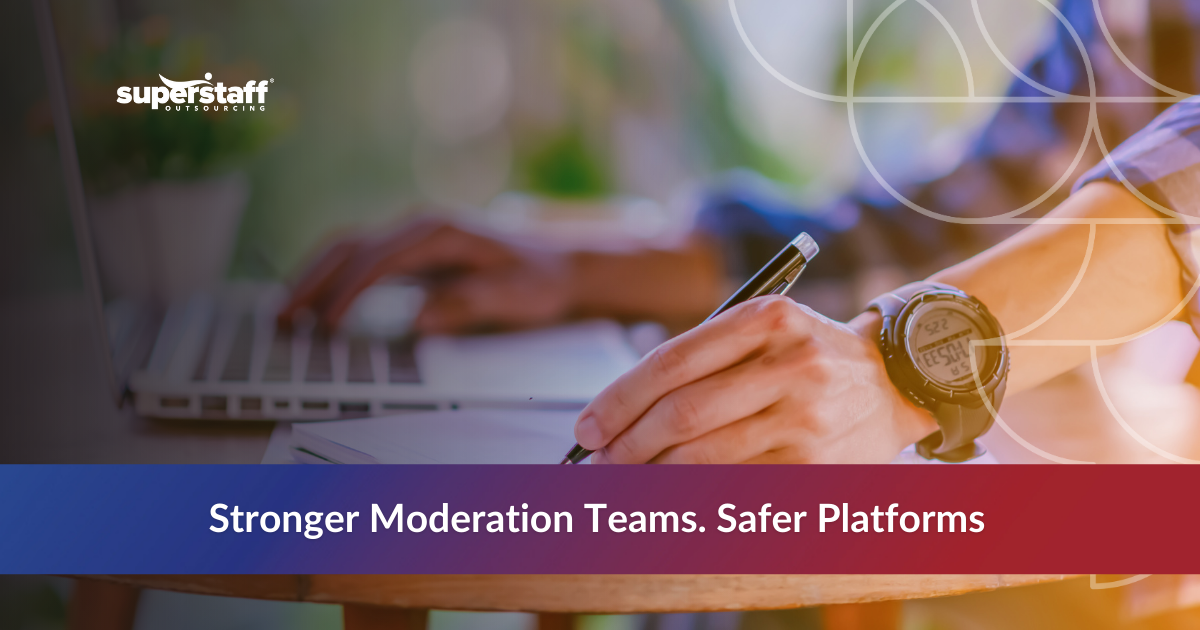
Supply chain outsourcing providers are becoming essential as global trade becomes more unpredictable. Tariff hikes, policy reversals, and rising geopolitical tensions are disrupting established shipping routes and inflate operational costs. As companies scramble to adapt, the pressure on supply chains is mounting, forcing logistics leaders to reevaluate their strategies for continuity and efficiency.
In this high-stakes environment, supply chain outsourcing providers are stepping into the spotlight. Once seen as purely cost-saving measures, today’s BPO partners are proving to be indispensable allies in managing risk, maintaining responsiveness, and navigating regulatory chaos. From dispatching and track & trace to POD verification and customer support, outsourced logistics teams offer companies the agility and expertise to stay ahead of disruption. By working with supply chain outsourcing providers, logistics teams gain access to specialized talent and tools that help reduce costs and respond to disruptions faster.
This blog explores how BPO dispatching and logistics support can be your secret weapon in a volatile global market.
Global Trade Tensions Are Disrupting Freight Operations and Driving Up Logistics Costs
The current global trade landscape is riddled with complexity. As nations enact protective tariffs and revise trade agreements, logistics providers are caught in the crossfire. These changes often happen with little warning, leaving freight operators scrambling to adapt.
One of the most pressing challenges is real-time visibility during customs delays. Shifting documentation requirements and fluctuating clearance timelines introduce unpredictability, causing bottlenecks in otherwise well-optimized supply chains. Higher shipping costs—driven by rerouted shipments and fuel surcharges—compound the issue, straining operational budgets. To remain competitive, many logistics companies are actively seeking supply chain outsourcing providers that can deliver scalable and reliable back-office and front-line solutions.
Labor shortages in warehousing and transportation only add to the burden. Skilled logistics personnel are in short supply, and high turnover rates mean constant recruitment and training costs.
As trade battles escalate, companies need agile support that doesn’t buckle under pressure. Enter BPOs.
Outsourced Dispatching Services Are Helping Logistics Companies Regain Control
Amid the chaos, outsourcing dispatch operations has emerged as a practical solution to regain order. Offshore dispatchers specialize in coordinating load assignments, optimizing routes, and maintaining seamless communication with drivers regardless of time zones.
With 24/7 support, logistics firms can handle disruptions as they arise, rather than waiting for domestic teams to come online. Cost-efficient load planning maximizes resources, even during peak congestion or rerouted freight scenarios.
Accurate record-keeping and driver communication logs make audits, dispute resolution, and regulatory compliance much easier. Dispatchers’ roles have shifted from administrative to strategic, and BPO teams are rising to the occasion.
Beyond dispatching, BPOs are filling the talent gaps across the entire logistics workflow. This is why many freight companies now rely on supply chain outsourcing providers to take over time-sensitive dispatching responsibilities and ensure 24/7 continuity.

BPOs Provide Reliable Support for Track & Trace, POD Verification, and Exception Handling
Transparency is everything in logistics, especially during cross-border transactions. Supply chain outsourcing providers now deliver robust support for track & trace operations, proof of delivery (POD) verification, and exception management. Each of these functions plays a pivotal role in maintaining service quality, avoiding penalties, and keeping customers satisfied. This growing reliance on supply chain outsourcing providers helps logistics companies overcome inefficiencies and scale faster across regions. With the help of supply chain outsourcing providers, businesses are enhancing traceability and accountability across their delivery networks.
Real-Time Updates Reduce Failed Deliveries and Customer Complaints
Real-time tracking enables all stakeholders—from shippers to consignees—to monitor freight movements every step of the way. When customers can see where their shipments are and receive timely updates, trust increases. Delays or reroutes become manageable when communicated promptly, minimizing frustration and customer service escalations.
Outsourced track & trace teams constantly update shipment statuses, resolve discrepancies in estimated arrival times (ETAs), and escalate issues when needed. This leads to fewer failed deliveries due to missed appointments, address errors, or surprise disruptions. The result? Fewer chargebacks, stronger brand reputation, and a better overall customer experience.
Verifying PODs Streamlines Billing and Compliance
Proof of Delivery (POD) is a critical checkpoint in the logistics cycle, particularly for billing and legal compliance. Missing or delayed PODs can hold up invoices, complicate disputes, and increase days sales outstanding (DSO).
Outsourced logistics teams ensure that PODs are validated, uploaded, and flagged for any issues in real time. Whether it’s a digital signature capture or scanned delivery document, BPO agents cross-check the information with carrier systems and customer requirements to ensure accuracy. By assigning this responsibility to supply chain outsourcing providers, companies can avoid delays and build a more consistent billing cycle. This verification step prevents billing errors, accelerates payment cycles, and reinforces compliance with contract terms and regulatory mandates.
Proactive Alerts Help Avoid Detention and Demurrage Charges
Another area where supply chain outsourcing providers excel is in proactive delay prevention, helping teams sidestep costly fees. When shipments are delayed beyond their allowable free time at ports or facilities, companies incur detention and demurrage fees, which often add thousands to logistics costs. The key to avoiding these charges is proactive exception management.
BPOs specializing in logistics support monitor dwell times and port activities closely. If a delay is detected or anticipated, they issue proactive alerts to carriers, warehouses, and customers. This early warning allows decision-makers to reroute cargo, adjust appointments, or request waivers before charges apply.
Moreover, supply chain outsourcing providers track patterns of recurring issues and offer actionable insights to reduce future risks. In short, they don’t just react to disruptions—they help prevent them.
With supply chains under pressure, having the right support systems is non-negotiable.
Logistics-Focused Customer Service Teams from BPOs Offer Multilingual, Around-the-Clock Support
Customer expectations haven’t changed—if anything, they’ve grown. Shippers, carriers, and end customers all want updates, answers, and issue resolution on demand. That’s where logistics-focused customer support from BPOs comes in.
These dedicated offshore teams are trained specifically for the logistics sector. They manage status updates, documentation requests, and troubleshooting through phone, email, and live chat, ensuring multichannel communication coverage.
Multilingual support is another critical edge. Whether your customers are in North America, Europe, or Asia, BPO teams offer language compatibility and cultural fluency that enhance the customer experience.
This kind of CX integration makes logistics BPO support reactive and revenue-supporting.
Outsourcing Allows Logistics Firms to Focus on Core Operations While Controlling Costs
One of the key benefits of third party logistics is the ability to offload routine yet essential tasks to specialized teams, freeing up in-house resources for core business operations. This is especially useful during times of economic volatility.
Whether facing new tariffs or sudden spikes in fuel costs, outsourcing supply chain management offers flexibility without compromising service quality. Companies can scale teams up or down as needed, reducing fixed overhead associated with hiring, training, and managing logistics staff in-house.
Outsourced teams also provide agility, which is critical when new trade regulations demand quick adaptation. Rather than getting stuck in decision paralysis, logistics leaders can rely on their BPO partners to maintain workflow continuity and meet customer expectations.
As companies deal with labor shortages and market volatility, turning to supply chain outsourcing providers ensures flexibility, speed, and cost savings without compromising quality. But not all BPOs are built the same—choosing the right partner matters.
SuperStaff Supports Logistics Companies With Tailored, Proactive BPO Solutions
At SuperStaff, we understand the nuances of global logistics. Our BPO solutions are tailored to fit your needs—from dispatching and back-office coordination to multilingual customer support.
Our dedicated logistics teams integrate seamlessly into your transportation management systems (TMS), ensuring minimal disruption and faster onboarding. Real-time performance tracking keeps service levels aligned with KPIs, giving you complete transparency and control.
We offer cost-effective support rooted in operational excellence, not just administrative relief. Our team members are trained to think proactively, providing recommendations and insights that enhance supply chain strategy.
When the stakes are high, your BPO support should be strategic, not just transactional.
Global Trade Wars Aren’t Slowing Down—But Supply Chain Outsourcing Providers Can Help You Keep Up
In a time of global trade unpredictability, BPO dispatching and logistics support offer a hidden edge that companies can’t afford to ignore. As tariff policies shift and labor challenges persist, maintaining service quality, visibility, and responsiveness becomes a competitive advantage.
Using outsourced logistics teams to manage tariff impacts enables businesses to remain agile, compliant, and customer-focused. With the right outsourcing partner, you can achieve 24/7 operational continuity, strengthened customer service, and scalable solutions tailored to volatile market conditions.
In a market where adaptability is everything, supply chain outsourcing providers are emerging as strategic allies—not just vendors. Ready to future-proof your logistics operations? Partner with SuperStaff to build a resilient dispatch and logistics support team that delivers regardless of the market.






